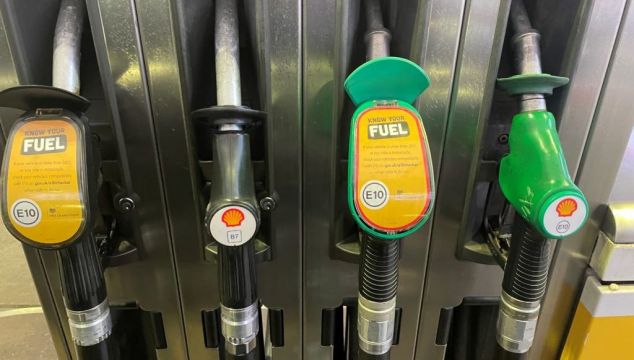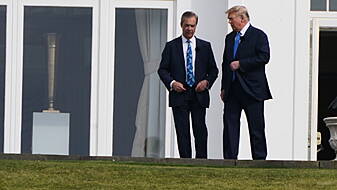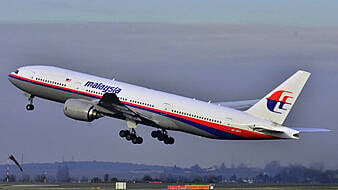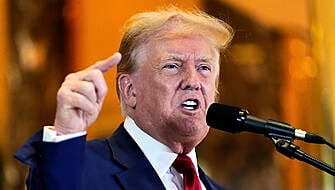As the Russian invasion of Ukraine continues to escalate, Irish consumers will unavoidably be impacted by price hikes and possible shortages, with the main areas of concern being fuel and food.
Here is everything you need to know...
Petrol and diesel
One of the most significant areas where Irish consumers have already been taking a hit is the cost of fuel.
Most recently, a number of Irish service stations were selling petrol and diesel at more than €2 a litre.
It comes as the price of oil jumped more than eight per cent on Monday, reaching its highest level since 2008. Brent crude was selling for $130 (€119.35) a barrel which is up 40 per cent from the week before.
Paddy Comyn, head of communications at AA Ireland, said that paying €2 for a litre of petrol or diesel could become the norm.
With scarce options for transport in rural communities across the country, many people will be left with no choice but to make cuts in other areas of expenditure to cover the cost of driving.
Gas supplies
Although energy and fuel prices have been rising across the board, gas supplies are arguably the most unstable.
This is down to Europe being heavily dependent on Russia for gas, which delivers an estimated 40 per cent of Europe's total supplies.
As reported in The Irish Times, the cost of gas shot up to well over €300 per megawatt hour first thing on Monday, before falling back to around €240. However, that was still around double their level at the start of last week.
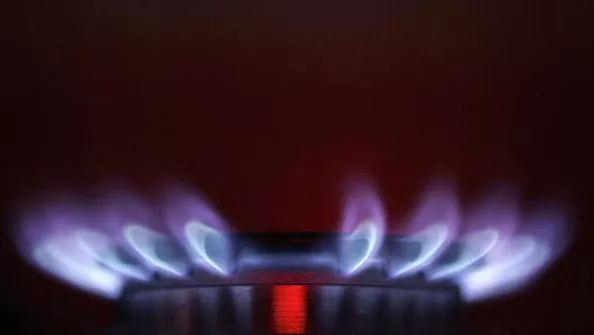
EU leaders are scheduled to discuss energy prices this week, which will see calls to move away from Russian gas.
Meanwhile, the volatile energy situation will also continue to have a knock on effect for Ireland's electricity prices, as 57 per cent of the State's electricity generation is reliant on gas.
Food shortages
The war could reduce food supplies just when prices are at their highest levels since 2011.
One of the major areas of concern is around wheat. Russia and Ukraine combine for nearly a third of the world’s wheat and barley exports which impact goods such as bread.
Ireland is heavily reliant on imported grain, with around 60 per cent of the 5.5 million tonnes used in the country every year being sourced from overseas.
Although there have not yet been global disruptions to wheat supplies, prices have surged 55 per cent since a week before the invasion.
Russia also supplies more than 20 per cent of fertiliser used in Ireland, a worry for Irish farmers.
Ukraine supplies the EU with just under 60 per cent of its corn and nearly half of the key component in the grains needed to feed livestock.
In the first two days of Russia’s assault on Ukraine, the price of grain for animal feed jumped 10 per cent on the open market in Spain.
The increased price of livestock feed has a knock on effects for the cost of meat and diary.
Ukraine and Russia also provide for 75 per cent of global sunflower oil exports, accounting for 10 per cent of all cooking oils, according to IHS Markit.
Irish consumers may not be feeling a severe impact on food supplies just yet, but price hikes and shortages are expected as the war continues.
What is the Government planning to do about it?
There are measures being discussed to help ease the burden on Irish consumers.
“Across the board, at the moment, the Government is obviously assessing the challenge that is emerging as a result of the Russian invasion of Ukraine,” Minister for Agriculture Charlie McConalogue said.
“We’re very conscious of the need to respond to those challenges properly. We were working across Government on that.”
Irish consumers pay about 60 per cent tax on fuel, so the Government could reduce the levy on petrol and diesel to cut prices.
However, the relatively low excise duty on gas, of 5.5 per cent, means policymakers will have to look at other options than simply cutting that tax.

One possibility could be another energy subsidy. The Cabinet recently approved a €200 energy subsidy for all households in a bid to tackle the cost of living crisis. If energy prices continue to skyrocket, the Government pay give another similar payout.
On Monday, Taoiseach Micheál Martin said that if production from the Corrib gas field could be increased then that would be done.
Ultimately the best way to ensure security of supply was to put more focus on renewables, he said, adding that a review of energy security which was under way would have to be accelerated to guarantee security of supply.
On the issue of food supplies, the Minister for Agriculture has assembled a rapid response team within his department to develop plans to deal with the anticipated disruption to supply lines.
Mr McConalogue is set to meet farming representatives on Tuesday to develop a plan to increase domestic production of grain.
However, farmers have insisted that the Government must act to reduce the cost of farming inputs, such as fertiliser and fuel, to facilitate domestic production.
Despite the various measures which could be implemented by the Government, as geopolitical tensions continue to escalate, so too could the cost of living for Irish consumers.
-Additional reporting by Reuters
